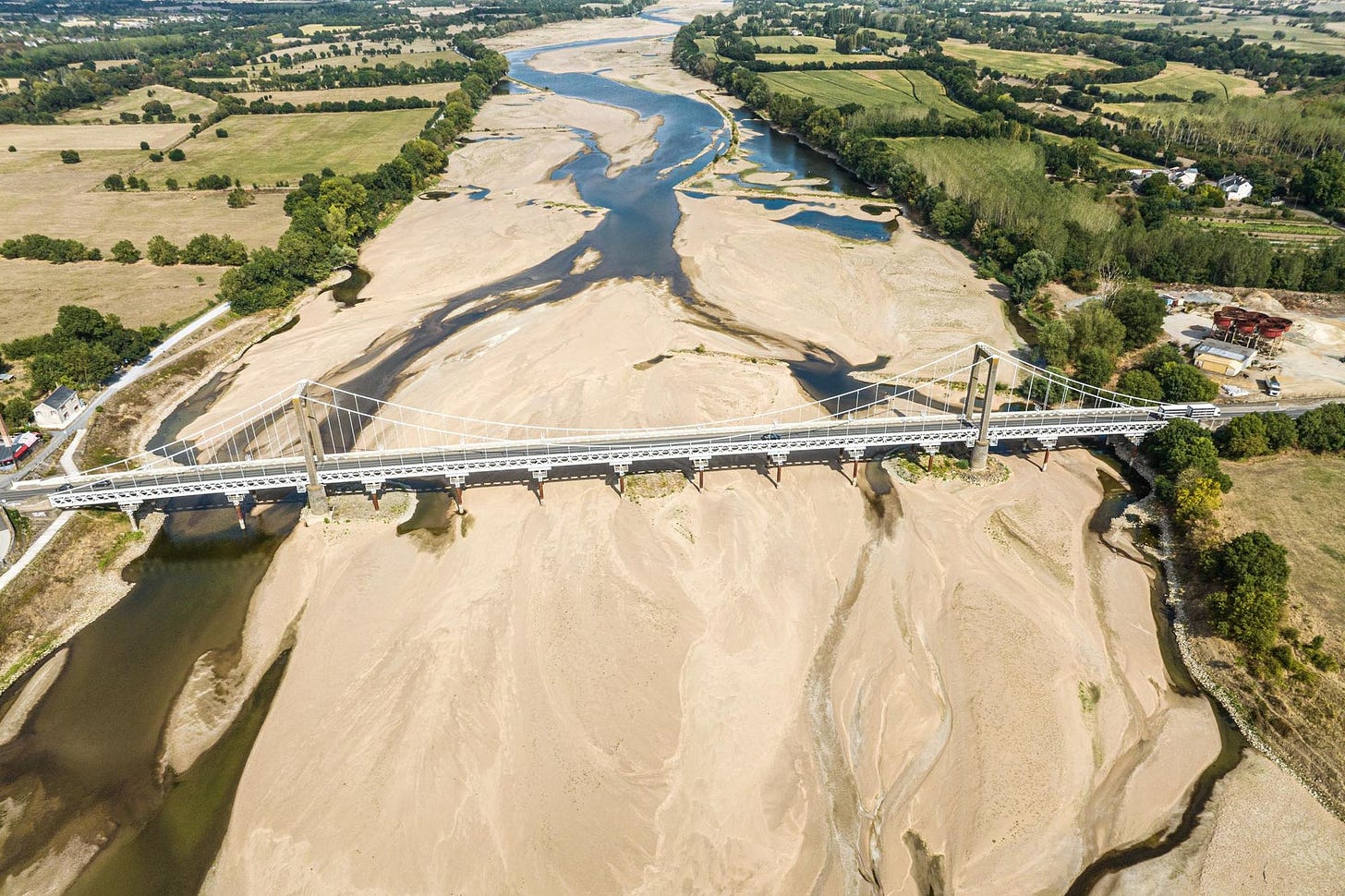Tapestries-49 | Questions
August 31. Laying out some questions to bounce around with you.
Hey Tapestry fam. Thank you for the feedback and engagement on the previous piece, and welcome to a few new subscribers too. Where the prior edition focused on a specific topic (China and rare earth metals), this edition is a return to a more diverse set of topics. I enjoy both approaches, and will keep experimenting, so as always, keep the engagement and feedback coming.
1. What I’m thinking
I’ve got more questions than answers right now. Questions often provide the overarching content or context for this section, so through laying out the questions currently percolating in my head, I’m hopefully laying out some ideas for future editions, and getting your feedback and engagement in advance. With these sentiments in mind, here are some questions occupying some of my attention at the moment:
A) How are we going to remember Covid-19, and what are some of the lessons we’ll take from the experience? For many, Covid-19 is already in the rearview mirror. Having now lived through something of historical significance, I’m curious how it will be remembered in the history books. Depending on who’s writing the history, and when, I think we may remember this period as a seminal moment in the histories of control and information. Said another way, I think some of the most important lessons we can and should take are around how information was yielded through the period, and how it was used to enforce alarming levels of control. I’m not sure if people are interested in talking about Covid anymore, but that doesn’t make the question any less important.
B) Do the challenges we currently face (e.g. climate, inequality etc.) require a wholesale resetting and restructuring of society, or should we be more incremental in our thinking? I’m torn here. Those yelling loudest about how broken our current system are also those who benefited the most from it (i.e. me, my generation, and others of a similar background and age). The nihilistic rage my generation has brought would seek to tear down the thing that provided us with such a fortunate, privileged upbringing. Are they right in suggesting we need a fundamental reset? Should we tear it all down and start again? Or should our project be to extend the incredible luck and fortune we were afforded as far and equitably as possible? Both approaches have merit, but it’s too big a question to be flippant about.
C) What’s the optimal relationship between work and passion? My generation is particularly guilty of a type of career-porn that pushes us to aspire to a career in an industry or role we’re passionate about, or find purpose in. I think it’s generally bad advice and quite unproductive. But what should the relationship between our job and passion or purpose look like? Should there be any relationship, or are they distinct realms?
D) Time; what is it, what is our relationship to it, and what are some productive ways of thinking about it? I think a lot about time. For reasons I’d like to explore, I’ve been thinking about it more lately, especially in reference to how finite it is. I have a fear of waking up in twenty years and realizing I spent a lot of time worrying about, or focused on, things that were entirely inconsequential and a waste of my time. But I’m also conscious of not thinking about time as a thing to be measured or possessed, so perhaps the concept of “wasting” it is itself flawed. Need to think more about time.
Those are some questions I’m currently bouncing around. If they’re questions you’ve thought about too, or if there’s something you’ve read or listened to that sounds relevant to these questions, hit me up. And maybe I’ll delve into these questions in a later edition.
2. What I’m consuming
A. The World’s Rivers, Canals and Reservoirs Are Turning to Dust, by Brian K Sullivan in Bloomberg
The piece opens with a blunt statement: “Rivers across the globe are disappearing.” It isn’t a long or hyperbolic piece. It just states, and shows in pictures, that the world’s waterways are drying up (which is obviously in stark contrast to the experience in Pakistan now as it deals with truly devastating floods). It spends some time discussing the causes, including climate change and La Nina, but what I found most jarring were the pictures. It’s clear that some of the world’s most important rivers are just drying up, including this shot of the Loire River in France (below), and the cover image (top) showing a dry river in Nebraska. The images are visceral and haunting and I recommend a short browse to see the scale of the problem.
I read this piece in conjunction with another in Foreign Affairs (China’s Looming Water Crisis) while also continuing to follow the energy crisis in Europe that’s gone from bad to worse as energy prices skyrocket even higher. The impact of water and energy scarcity will be felt in prices in developed countries, but will do their damage in developing countries that will see their staples (energy, food, water) bid away by wealthier countries making up their own shortfalls. This type of resource competition and resulting displacement leads to conflict, and it’s hard to see how we avoid conflict in a world that’s warming, drying and set to battle over increasingly scarce resources.
B. The Reluctant Prophet of Effective Altruism, by Gideon-Lewis Kraus in The New Yorker
I thought this was a fantastic long read profiling William MacAskill and the broader effective altruism (“EA”) movement, one MacAskill has been a leading figure of for some time. I recommend the read for two reasons. First, MacAskill is a really interesting figure, and seems to be possessed of a rare combination of integrity, authenticity and thoughtfulness. And second, and perhaps more interestingly, the effective altruism movement is worth paying more attention to, as the movement which “used to be a loose, Internet-enabled affiliation of the like-minded, is now a broadly influential faction, especially in Silicon Valley, and controls philanthropic resources on the order of thirty billion dollars.”
I find it a fascinating movement because it’s (a) morally-driven, (b) intellectually fertile given its emphasis (in parts) on possible events in the distant future, events that often skew apocalyptic, (c) very well-funded by young, wealthy and ambitious individuals, and (d) continues to grow in its scope and influence. All of these things make it interesting enough, but what really gets me — and what’s fantastic about this piece — is the possibility that in EA some have simply found another channel or forum through which to channel a religious impulse. I don’t know enough about the movement to form too strong a view, but this piece left me with plenty to ponder regarding a movement of growing power and potential.
C. The Elite Panic of 2022, by Martin Gurri in City Journal
I’ve written about Martin Gurri before and continue to believe he is essential reading for those looking to understand the nature of the events unfolding around us. This latest piece is typically incisive, and uses three recent examples or events — the removal of the mask mandate in the US, a recent Barack Obama speech at Stanford, and Elon Musk’s attempted Twitter buyout — to again make the strong case that the elite, managerial class is seeking to exert ever more control over the information (and “disinformation”) we consume, and by extension, how we live our lives.
The loosening of the elite’s grip on authority is one of the dominant features of our time, and their response — one that isn’t surprising — is to try and hold onto authority through the imposition of greater control. The examples are all around us, with the Covid-19 experience being the starkest. Depressingly, I feel we are quickly forgetting the blatant exercise in dishonesty and control the authorities’ conduct represented. If you are curious as to what I mean when I talk about elite control and dishonesty, I suggest reading this Gurri piece, as well as this piece (Dr. Fauci’s Legacy) from last week following the the doctor’s resignation. A large portion of the discontent I describe above is driven by a sense we’re being lied to and coerced, and to move forward, we must first describe it, which Gurri does better than most.
3. What I’m writing
I’ve now written five chapters in the book, two of which were substantive in that they discussed specific principles (dignity and integrity) I want to be held accountable to. Given I’m at the halfway-ish mark, I decided to reflect on the draft and journey so far, and derived two observations from that reflection.
The first observation was about structure. I’ve found the first half of each chapter — where I explore different observations about the world and the nature of my life within it — has flowed relatively freely. But when I’ve turned to the second half of the chapter — where I aim describe a principle in reference to those observations — I’ve found the writing hasn’t come as easily. It may be that the attempt to assign a single principle to the stated conditions is overly simplistic. It may also be that there isn’t much to say about each principle, compared to the more exploratory first half of the chapter. Either way, it feels clear I should adapt the structure and approach in a way that de-emphasizes the need to split the chapters in two halves, while retaining the intent to articulate a set of principles and virtues I want to adhere to.
The second observation was about the theme and framing. The recurring theme in the chapters so far, and the chapters I think will comprise the rest of the book, is distance. I’ve described how the distance between us and the objects of our desire has compressed; how the distance between us and our neighbors has expanded; and how the distance between the real and projected versions of ourselves has grown. Although I haven’t fully explored the remaining chapters — courage and presence — I have an idea how they could be tied back to the concept of distance in a way that’s hopefully interesting, engaging and useful.
So at this juncture, I have a question to consider: how to (a) restructure the book and chapters around the concept of distance, and (b) how to do so in a way that retains the very personal and subjective nature of the project. I think exploring the concept of distance, and how the topography and texture of living has evolved in my lifetime, is a really interesting project, and I’m confident I can center the project and book on articulating how I want to live within these new notions of distance; in this sense, it’s less a restructuring and more a shift in emphasis in the structure of the chapters. This approach reminds me of a book from a good friend (thank you, Will) called Silence In The Age of Noise by Erling Kagge, a book I really enjoyed, and one that could operate as a model of sorts for the draft.
I’ll let this idea percolate for a little, and if it feels a good fit, will incorporate it into the existing draft, and use the template and approach for the rest of it.
Nice. Have an epic rest of the week fam.



